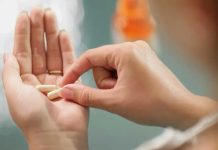Over 80 percent of 200 COVID-19 patients in a hospital in Spain have vitamin D deficiency, according to a new study published in the Endocrine Society’s Journal of Clinical Endocrinology & Metabolism.
Vitamin D is a hormone the kidneys produce that controls blood calcium concentration and impacts the immune system. Vitamin D deficiency has been linked to a variety of health concerns, although research is still underway into why the hormone impacts other systems of the body. Many studies point to the beneficial effect of vitamin D on the immune system, especially regarding protection against infections.
“One approach is to identify and treat vitamin D deficiency, especially in high-risk individuals such as the elderly, patients with comorbidities, and nursing home residents, who are the main target population for the COVID-19,” said study co-author José L. Hernández, Ph.D., of the University of Cantabria in Santander, Spain. “Vitamin D treatment should be recommended in COVID-19 patients with low levels of vitamin D circulating in the blood since this approach might have beneficial effects in both the musculoskeletal and the immune system.”
The researchers found 80 percent of 216 COVID-19 patients at the Hospital Universitario Marqués de Valdecilla had vitamin D deficiency, and men had lower vitamin D levels than women. COVID-19 patients with lower vitamin D levels also had raised serum levels of inflammatory markers such as ferritin and D-dimer.
Other authors of the study include: Daniel Nan, José M. Olmos, Javier Crespo, and Víctor M. Martínez-Taboada of the University of Cantabria; Marta Fernandez-Ayala, Mayte García-Unzueta, Miguel A. Hernández-Hernández, Marcos López-Hoyos, Manuel Gutiérrez-Cuadra, and Juan J. Ruiz-Cubillán of the Hospital Marqués de Valdecilla-IDIVAL in Santander, Spain; Pedro Muñoz Cacho of the Servicio Cántabro de Salud in Santander, Spain;
The manuscript received funding from Instituto de Salud Carlos III.
































